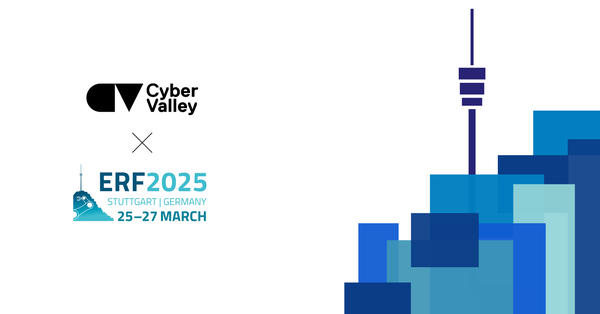Expert advice on getting started in AI and robotics
Application deadline March 31, 2022

The high potential of AI and robotics technologies is undisputed. However, many companies, and medium-sized companies in particular, still have difficulty identifying the most suitable AI technologies for relevant use cases. This has been confirmed by numerous studies, including one by Bitkom in April of last year. According to this study, the lack of money, personnel and time are frequent obstacles to the use of AI. In order to provide companies with the best possible support, an individual expert assessment is required. This is precisely what the AI Innovation Center offers with its low-threshold services. Almost 200 companies have already taken advantage of this opportunity. An overview of the varied results can be found on the website linked below.
Companies from startups to corporations can apply with their project outline until March 31, 2022. There are two project formats:
- “AI Explorer”: This format provides basic knowledge for all companies that want to find out about possible uses of AI or robotics but do not yet have a concrete idea. In workshops, Fraunhofer employees offer an assessment of where AI and robotics stand in the company and what the best order of procedure would be to bring the technologies into practice. The experts help to assess the current situation and highlight the potential for process improvements or product and service innovations through AI and robotics applications.
- “Quick Checks”: This project format allows companies to check the feasibility of an individual AI or robotics application, for example an existing idea. After the company has presented its specific use case, Fraunhofer employees investigate the extent to which the project is feasible. The result is a feasibility statement in the form of a short “proof of principle”.
The current application deadline addresses companies that have not yet collaborated with the AI Innovation Center. The project formats are free of charge for companies based or located in Baden-Württemberg. This is possible because the AI Innovation Center receives extensive funding from the Ministry of Economic Affairs, Labour and Tourism of Baden-Württemberg.
Successful project formats
Both project formats require only a minimal application effort and have proven to be particularly successful in recent years. Together with the Center for Cyber Cognitive Intelligence (CCI), the two Fraunhofer Institutes have carried out the more than 200 projects already mentioned. This not only shows that many companies in Baden-Württemberg have already benefited from them. The projects also give Fraunhofer experts a thorough insight into the companies’ research and development needs – the basis for a targeted and successful technology transfer.
The topics covered by the AI Innovation Center are very broad. Success stories include the Quick Check for automated end-of-line packaging using AI-based image processing and a robot. It was also examined to what extent image processing and the subfield of machine learning (ML) can be used to automatically detect damage to vehicle bodies, which provides important information to rental car companies or used car dealers, for example. Both Quick Checks led to further collaboration between the companies and Fraunhofer, resulting in the prototyping of the applications. In the context of the service economy, a Quick Check for a book wholesaler was able to demonstrate the possibility of predicting as accurately as possible, using AI, when which products will be ordered and in what quantity.
Human-centered and application-oriented
The projects of the AI Innovation Center focus on human-centered AI. This includes the explainability, verifiability, cooperation, integration and robustness of AI technologies. Only when people interact intuitively with new technologies and work together in a trusting manner an optimal utilization of their potential can be achieved. Companies also benefit from the fact that the AI Innovation Center is embedded in Europe's largest AI research network, Cyber Valley, in which it has the task of bridging the gap between top-class fundamental research at various institutions in the Stuttgart-Tübingen area and the technological needs on the user side.
Statements from project partners
Company Sick: “The colleagues from Fraunhofer have developed an excellent overview of existing methods for quality assurance of neural networks using the Quick Check. With their expertise, we hope to be able to take further steps in the direction of ‘Safe Artificial Intelligence’.”
Knorr-Bremse Company: “In the Quick Check, the team at Fraunhofer evaluated the training of models using public datasets to pre-label video scenes. The obtained results are encouraging and form a very good basis for further examination. The very knowledgeable and professional execution of this project was also very well documented by the FhG partners, and we look forward to further possible collaboration with great optimism.”
Company IDS: “A common goal of Fraunhofer IPA and us is to make AI applicable and explainable. During the Quick Check, Fraunhofer IPA brought us one step closer to this goal through competence and drive. The short project time has already shown that not only the decision of neural networks is important, but also which image features lead to the decision in order to detect data manipulation and distortions. We look forward to continuing this productive collaboration.”
Related Articles

Stuttgart to become Europe's hot spot for AI and robotics...

European Robotics Forum 2025 (ERF2025)


